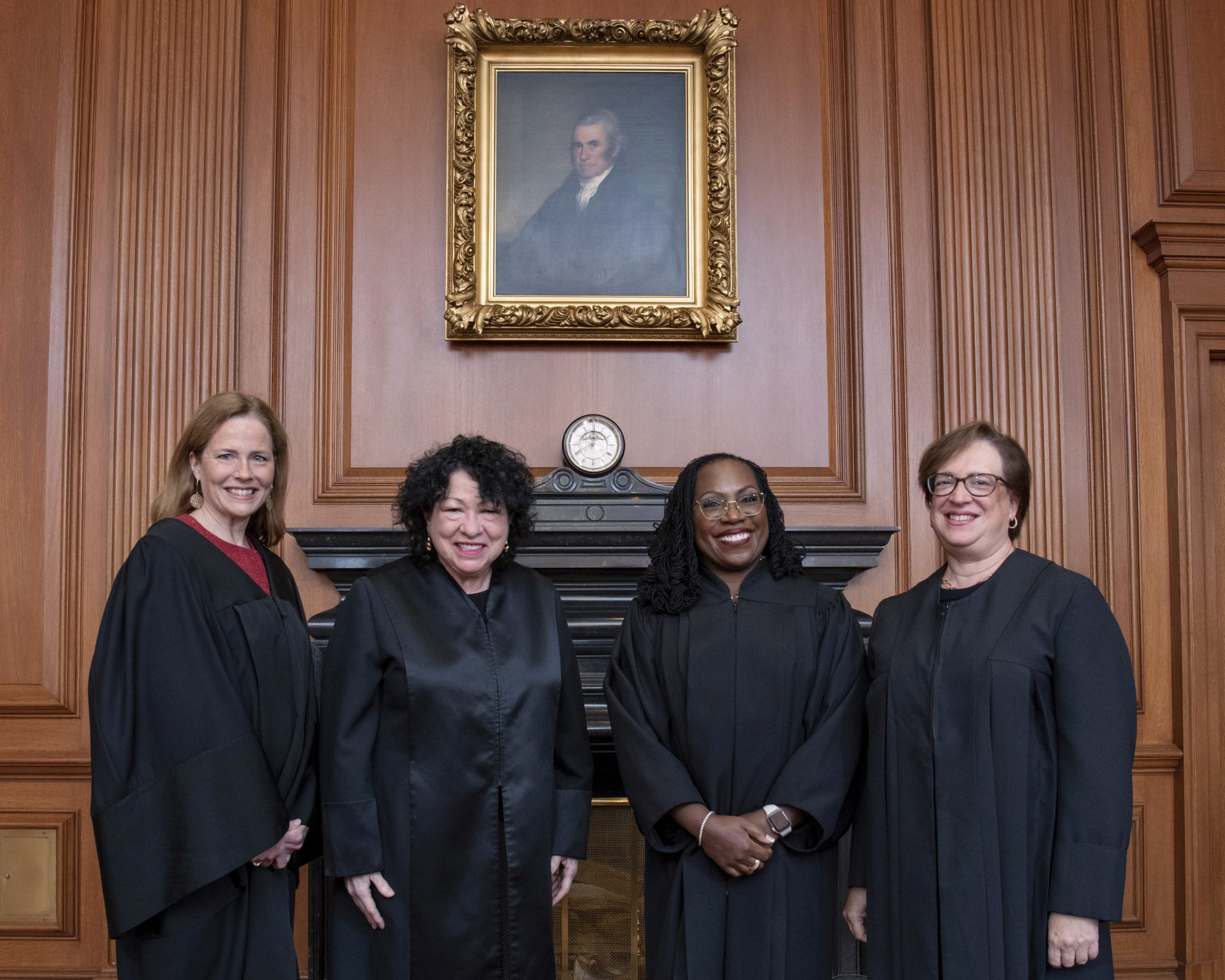The Supreme Court began its new term Monday, marking the first time Justice Ketanji Brown Jackson, who made history as the only black woman to be named to the high court, heard oral arguments along the full nine-member bench.
Jackson, who was celebrated by hundreds of government officials attending her investiture to the high court on Friday, became the sixth woman ever to join the Supreme Court after her April confirmation in the Senate. Monday also marked the first time that four women have served on the court together, with Justices Jackson, Elena Kagan, Sonia Sotomayor, and Amy Coney Barrett all hearing arguments in the case Sackett v. EPA.
SEE IT: FIRST PHOTO OF KETANJI BROWN JACKSON ALONG REST OF SUPREME COURT

The case in question stems from a dispute between the Environmental Protection Agency and a couple who has been trying to build a home near Idaho’s Priest Lake since 2007. The EPA notified them that wetlands on their property were subject to the agency’s Waters of the United States regulations, meaning a permit would be required to build on the land.
Thus, the Sacketts are asking the court to narrow the government’s jurisdiction over wetlands to involve those with only a visible surface connection to U.S. waters.
Jackson, a 52-year-old former D.C. Circuit Court judge nominated to succeed retired Justice Stephen Breyer, was anticipated to bring a new perspective to the 6-3 Republican-appointed majority on the high court as the only former public defender on the bench. Her first day on the court was marked by active questioning and challenging a lawyer seeking to limit the Clean Water Act severely.
Justice Ketanji Brown Jackson’s first questions from the bench, grilling a lawyer trying to gut the Clean Water Act. When he says a provision of the law is “unenlightening,” KBJ responds dryly: “Let me try to bring some enlightenment to it.” pic.twitter.com/1Tyllv0lJr
— Mark Joseph Stern (@mjs_DC) October 3, 2022
“You say the question is which wetlands are covered, which I agree with,” she told a lawyer for the property owners. “But I guess my question is, why would Congress draw the coverage line between abutting wetlands and neighboring wetlands when the objective of the statute is to ensure the chemical, physical, and biological integrity of the nation’s waters?”
Numerous court watchers lauded Jackson’s first day on the job as “insistent” and “assertive,” including lawyer and political commentator Ed Whelan, who said she asked “good clear questions.”
CLICK HERE TO READ MORE FROM THE WASHINGTON EXAMINER
Jackson was also reportedly wearing a lacy jabot around her collar during arguments on Monday, a feature Bloomberg Law pointed out as a possible homage to the late Justice Ruth Bader Ginsburg, who wore a similar item on several occasions including in cases when she was in dissent.
Monday also marked the first day members of the public were back inside the courtroom to hear oral arguments after the Supreme Court shuttered in spring 2020 due to the COVID-19 pandemic.
